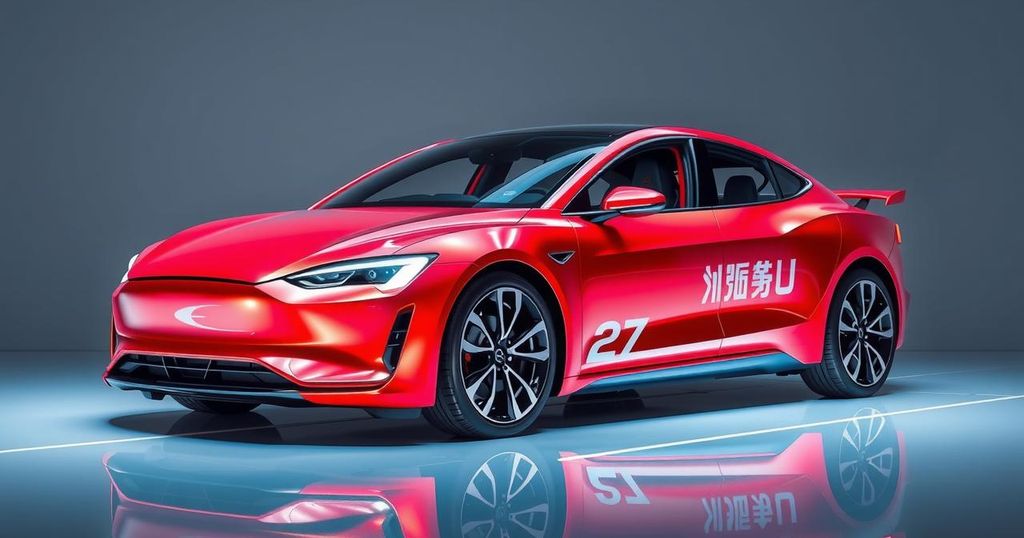Harnessing Global Collaboration for Sustainable Growth in Electric Vehicles
The article discusses the rise of China’s electric vehicle industry, highlighting its competitiveness due to innovation, manufacturing efficiency, and a strong domestic market. It critiques Western media perceptions and trade restrictions that hinder collaboration. The article calls for international cooperation to establish standards and reduce barriers in the EV sector, emphasizing that global teaming is vital to addressing climate change effectively.
The surge in popularity of Chinese electric vehicles (EVs) presents both admiration and skepticism on a global scale. International organizations, such as the United Nations, have recognized China’s commitment to sustainable energy and its impact on climate change. Yet, certain Western media outlets criticize China’s success, often attributing it to “unfair practices.” This perception overlooks the complex factors contributing to China’s EV industry’s achievements, including relentless innovation, a strong manufacturing ecosystem, and a vigorous domestic market that fosters competition.
China’s EV sector is thriving due to its emphasis on innovation, cultivated through substantial investments in research and development since the 1990s. This innovation is often paired with collaborative efforts among universities and research institutions, allowing for rapid advancements in technology. Such frameworks are not exclusive to China; countries like the United States and Germany have employed similar models to bolster their technological capabilities. Furthermore, international cooperation has catalyzed breakthroughs in the EV field, exemplifying a collaborative global innovation system.
Over the past 40 years, China has emerged as a pivotal global manufacturing hub. Its well-structured industrial value chain enables efficient production of EVs, meeting global quality standards while maintaining cost-effectiveness. The domestic market’s competitiveness forces manufacturers to enhance product offerings, allowing them to meet international standards while preparing for global competition.
Unfortunately, trade restrictions imposed by Western economies have created barriers for Chinese EVs, disrupting market dynamics and increasing consumer costs, thus undermining their climate commitments. For example, the contrasting position of the European Union, which advocates for climate action yet imposes restrictions on Chinese EVs, highlights a concerning inconsistency that may hinder progress toward sustainable transportation.
To counteract these trade barriers, Chinese EV manufacturers may consider establishing joint ventures and production facilities abroad—a strategy reminiscent of Japanese automakers in the 1980s. Offering tailored solutions and forming strategic partnerships with Western companies can help integrate these manufacturers into international markets. Ongoing cooperation in research and development can facilitate a smoother transition to EVs for their Western partners.
Collaboration must extend beyond individual companies; governments should work together to minimize trade restrictions and establish regulatory frameworks conducive to a thriving EV market. By creating international standards for charging infrastructure, battery technology, and safety measures, countries can ensure interoperability and encourage cooperation.
In conclusion, the path to addressing climate challenges requires unwavering global collaboration. China’s leadership in EV technology provides an avenue for Western automakers to transition towards sustainable practices. By prioritizing open markets and collective frameworks, nations can advance innovation, reduce costs, and make substantial strides in achieving climate objectives, ultimately benefiting the global community.
The article addresses the global impact of China’s electric vehicle (EV) industry, which has gained recognition for its strength in innovation and manufacturing. It contrasts China’s progress against Western critiques that often highlight perceived unfair practices in trade. Given the current geopolitical climate and environmental challenges, the piece advocates for international cooperation between China and Western countries, emphasizing the need for collaborative strategies to confront climate change and enhance the EV market’s global landscape.
In summary, the ascent of China’s electric vehicle industry represents a critical opportunity for worldwide collaboration rather than competition. By overcoming trade restrictions and fostering joint efforts, both Western countries and China can capitalize on mutual strengths to accelerate the transition to sustainable transportation. Ultimately, collective innovation and an open market approach are essential for addressing impending climate challenges and achieving the desired environmental goals.
Original Source: www.chinadaily.com.cn




Post Comment